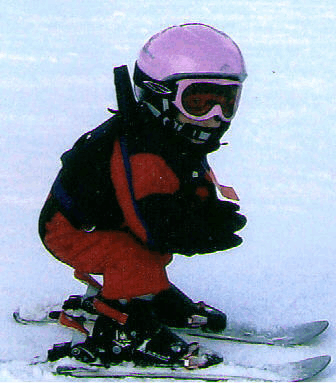Short QT Syndrome Patients
Short QT Syndrome presentation in utero
Preben Bjerregaard, Peter S. Fischbach, Hari K. Nallapaneni and Elhadi Aburawi
Short QT Syndrome (SQTS) is a rare form of hereditary channelopathy with a high propensity to atrial and ventricular fibrillation. When atrial fibrillation (AF) occurs in SQTS, it is usually later in life, and not accompanied by bradycardia. AF is a very rare arrhythmia in a newborn, and when it occurs, it is usually with a fast ventricular response. We have gathered 3 patients with SQTS who presented in very similar ways with AF and marked bradycardia in utero. Two of the patients were found by review of the literature. Patient # 1 was published in Cardiovascular Research (2005;68:433-440) by Hong K. et al. Patient # 2 was published in Acta Paediatrica (2006;95(12):1700-1702) by Aburawi E. et al. (SQTS diagnosed later). Patient # 3 was diagnosed by one of the authors (P.S.F.)
Clinical characteristics:
| Patient # | 1 | 2 | 3 |
| Mutation | KCNQ1 | UNKNOWN | KCNQ1 |
| HR in utero | Severe bradycardia | 50 bpm | 50-60 bpm |
| Pregnancy interrupted | 38 week | 42 week | 38 week |
| HR at birth | 60 bpm | 50 bpm | 80-90 bpm |
| Neonatal ECG | AF | AF | AF |
| Follow-up | Unknown | 23 years | 4 years |
| Symptoms | Unknown | None | None |
| Gender | Female | Male | Female |
| QT/HR | 280 msec/66 bpm | 290 msec/52 bpm | 260 msec/89 bpm |
| Treatment | None | Pacemaker | Amiodarone Flecainide |
Patient # 1: Underwent unsuccessful DC cardioversion. EP study confirmed the diagnosis of AF and demonstrated a normal HV interval.
Patient # 2: Received a PM at 15 years of age because of persistent slow heart rate and a 6 second pause. He died 26 years old in a car accident. Father has SQTS, but lost from follow-up.
Patient # 3: Underwent DC cardioversion which was unsuccessful except after pre-treatment with either amiodarone or flecainide, but followed by only brief periods of normal SR with PR interval of 150 msec. EP study confirmed the diagnosis of AF. Yearly Holtermonitorings in this patient have shown persistent AF with average HR: 46-47 bpm, minimum HR: 35-37 bpm and maximum HR: 69-70 bpm with frequent, prolonged episodes of complete AV block.
Children born with atrial fibrillation needs to be ruled out for SQTS, especially when they present with bradycardia in utero.

Patient #3 18 months old